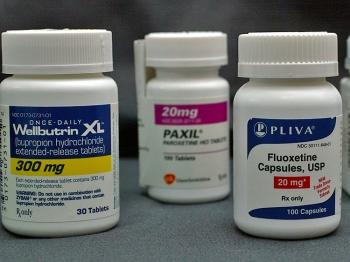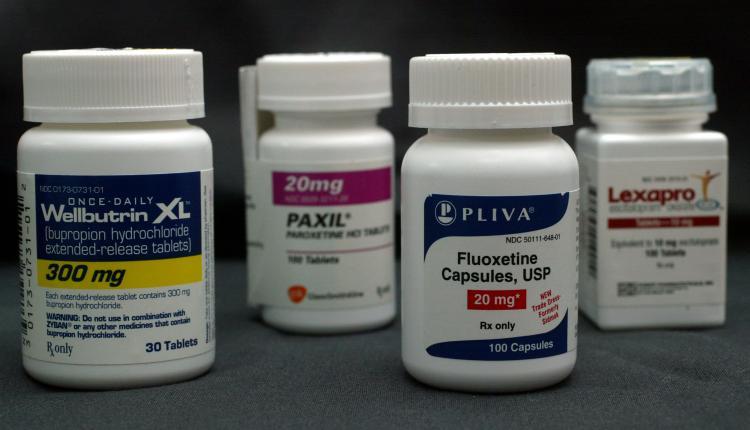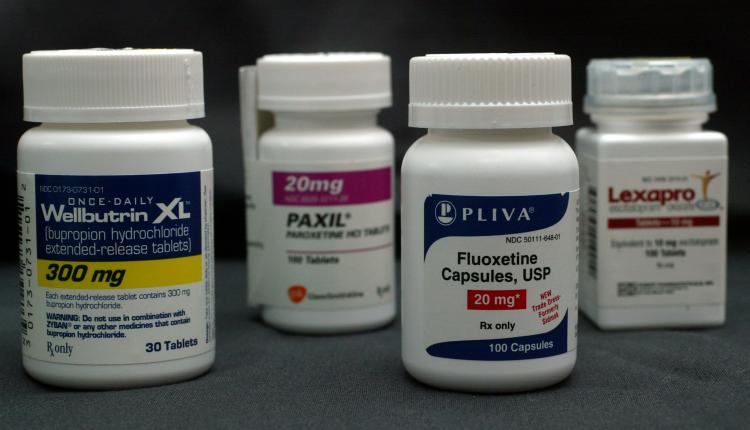Antidepressants: Most Antidepressants Do Not Suppress All Symptoms of Depression: Study
Antidepressants: Despite being in common usage, antidepressants may not treat all aspects of the condition, such as insomnia and reduced concentration, according to a new study on psychopharmacology.

Antidepressant pills (L-R) Wellbutrin, Paxil, Fluoxetine and Lexapro. Joe Raedle/Getty Images
|Updated:





